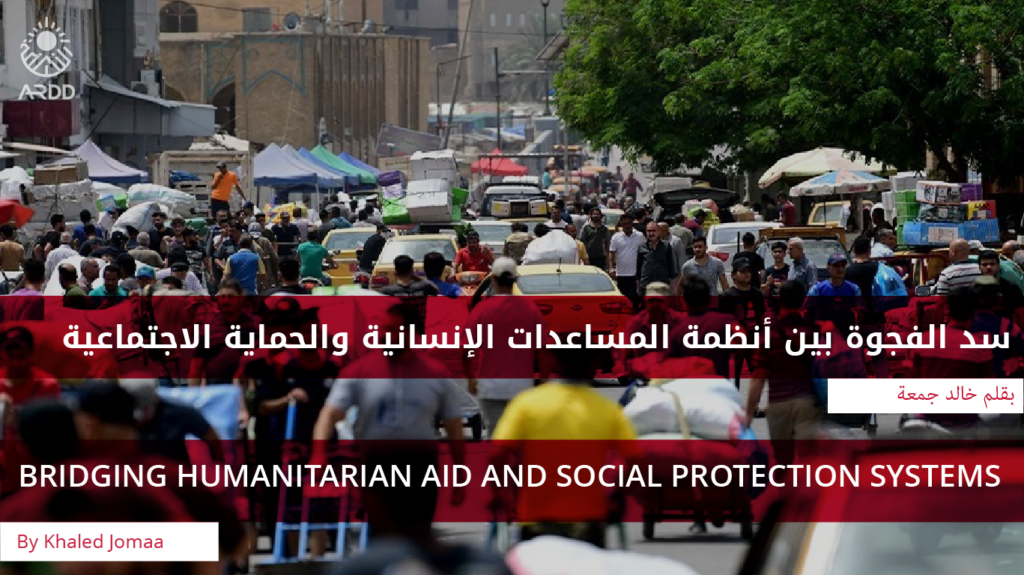
In a recent conference organized by the Danish Refugee Council in partnership with the Arab Reform Initiative, experts, policymakers, and stakeholders gathered to discuss ways to bridge the gap between humanitarian assistance and social protection systems in the Middle East. This event, focusing on crises in Lebanon, Syria, Iraq, Yemen, and Jordan, emphasized the urgent need for integrated responses that go beyond short-term aid to build sustainable social protection frameworks.
The Arab Renaissance for Democracy and Development (ARDD) actively participated in the conference, alongside other international and national partners. ARDD has been a committed partner in this initiative since the initial discussions in September 2023. This latest conference marked the third in a series of dialogues dedicated to addressing the complexities of integrating humanitarian aid with social protection systems.
A Call for Integrated Solutions
As in previous occasions, the conference aimed to break down silos between humanitarian aid and long-term development efforts. It brought together international and local NGOs, civil society organizations, researchers, UN agencies, and donors to address critical challenges in the region. The central theme was clear: tackling humanitarian crises requires more than just emergency relief. Instead, it demands a shift towards systems that can support vulnerable populations sustainably over the long term.
One of the core ideas discussed was how to make humanitarian aid more aligned with social protection programs. This includes ensuring that, over time, beneficiaries of aid can transition into state-led social protection schemes, thus reducing dependency on short-term relief.
Challenges in the Arab Region
The conference highlighted the urgent issues facing the Arab world today:
Social Protection in Focus
The discussions also addressed the state of social protection systems in Iraq, Jordan, and Lebanon:
Towards a Sustainable Future
The takeaway from the conference was clear: addressing social and humanitarian challenges in the Arab region requires a shift from reactive aid to proactive, sustainable solutions. Integrating humanitarian assistance with social protection systems can help build resilience, improve social cohesion, and ensure that vulnerable populations are not left behind.
However, achieving these goals will require more than just policy changes. It will take genuine political will, robust data-driven strategies, and a commitment to collaboration among governments, international agencies, and local actors. By working together, the region can build systems that not only respond to crises but also pave the way for a more stable and prosperous future.
Building on its active engagement in these dialogues, ARDD, in partnership with the Danish Refugee Council (DRC), has launched a specialized training program for humanitarian sector professionals. This initiative is designed to equip aid workers with the essential skills and knowledge to effectively incorporate social protection mechanisms into their efforts. The program aims to enhance the capabilities of humanitarian professionals, enabling them to better understand and implement social protection strategies. Additionally, it promotes closer collaboration between humanitarian organizations and national social protection systems, ensuring more cohesive and integrated responses to the region’s ongoing challenges.
By continuously investing capacity-building initiatives, ARDD is not only advocating for change but actively equipping humanitarian professionals with the tools to implement sustainable social protection strategies. This proactive approach highlights the potential for innovative partnerships and integrated solutions that bring about lasting change in the region, ensuring that aid efforts are both effective and enduring.
Our flagship newsletter provides a weekly round-up of content, plus receive the latest on events and how to connect with the institute.